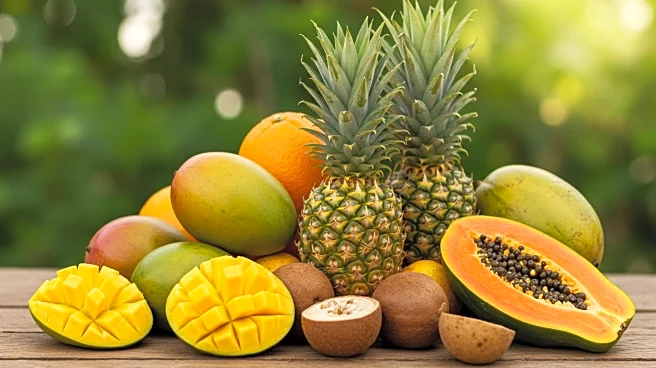What's Happening?
Mexico City is experiencing a shift in its agricultural landscape due to climate change, allowing tropical fruits like papayas and bananas to thrive in an area traditionally known for cooler climate crops. The Huerto Tlatelolco urban garden, managed by Gabriela Vargas, has seen an increase in tropical plant growth over the years. This change is attributed to the rising temperatures in Mexico, which have increased by 1.8 degrees centigrade, surpassing the global average. While this development allows for new agricultural opportunities, it also signals broader environmental challenges.
Why It's Important?
The emergence of tropical fruits in Mexico City highlights the tangible impacts of climate change on agriculture. This shift could have significant implications for local farmers and the agricultural economy, as traditional crops may struggle under new climate conditions. The adaptation of agriculture to these changes is crucial for food security and economic stability. However, the broader environmental consequences, such as reduced yields of staple crops like coffee and corn, pose serious challenges that need to be addressed through sustainable practices and policies.
What's Next?
As climate change continues to affect Mexico's agriculture, there may be increased efforts to adapt farming practices to new conditions. This could involve research into climate-resilient crops and investment in sustainable agricultural technologies. Policymakers and agricultural stakeholders will need to collaborate to mitigate the negative impacts on traditional crops and explore opportunities presented by new growing conditions. The situation also calls for a broader discussion on climate change adaptation strategies at both local and national levels.











